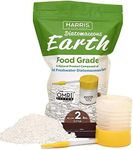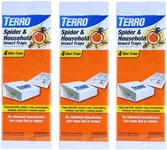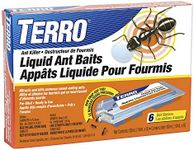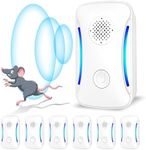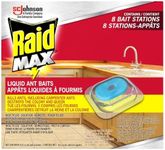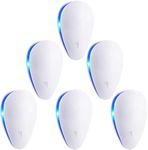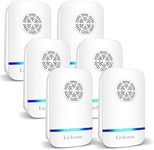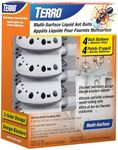Buying Guide for the Best Indoor Ant Killer Safe For Pets
Choosing an indoor ant killer that is safe for pets requires a careful balance between effectiveness and safety. Since pets are naturally curious and may come into contact with treated areas, it's important to select a product that targets ants without posing a risk to your furry friends. Understanding the key features and specifications will help you make a choice that keeps your home ant-free while ensuring your pets remain healthy and safe.Active IngredientsThe active ingredient is the chemical or natural substance that actually kills the ants. This is crucial because some ingredients can be toxic to pets, while others are considered safer. Common pet-safe options include borax or diatomaceous earth, which are generally less harmful if ingested in small amounts. On the other hand, products containing synthetic chemicals like permethrin or fipronil can be dangerous for pets. When choosing, always check the label for the active ingredient and research its safety profile for your specific type of pet. If you have small animals or birds, extra caution is needed, as they can be more sensitive than dogs or cats.
Formulation TypeAnt killers come in various forms such as sprays, baits, gels, powders, and granules. The formulation affects how the product is applied and how likely it is that your pet will come into contact with it. Baits and gels are often enclosed or placed in hard-to-reach areas, making them safer for homes with pets. Sprays and powders can linger on surfaces and may be more easily accessed by pets. If your pet is prone to licking or sniffing around, opt for enclosed bait stations or gels that can be placed out of reach.
Application AreaWhere you plan to use the ant killer matters for pet safety. Some products are designed for cracks and crevices, while others are meant for open surfaces. Products intended for hidden or inaccessible areas are generally safer for pets, as they reduce the chance of accidental exposure. Think about your pet’s habits—if they like to explore every corner, choose a product that can be applied in places your pet can’t reach.
Residual EffectResidual effect refers to how long the product remains active after application. A longer residual effect means the product continues to kill ants over time, but it also means there’s a longer period during which your pet could be exposed. If you want quick results and minimal risk, look for products with a short residual effect or those that can be cleaned up easily after the ants are gone. For ongoing problems, enclosed baits with a controlled release are a safer choice.
Odor and SensitivitySome ant killers have strong odors or fumes that can irritate pets, especially those with sensitive respiratory systems. Odorless or low-odor products are better for indoor use, particularly if you have pets with allergies or breathing issues. Always ventilate the area after application and monitor your pet for any signs of discomfort.
